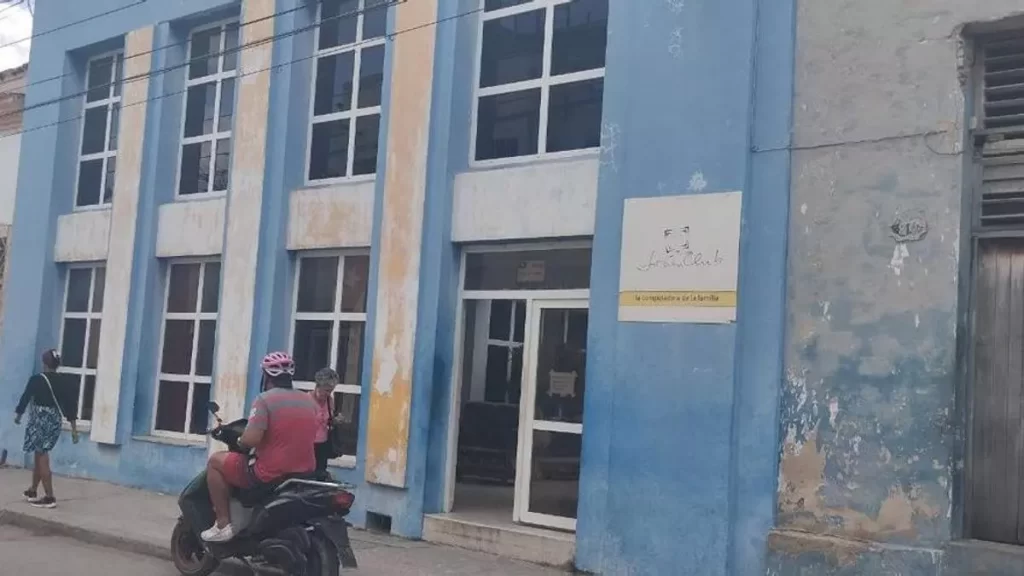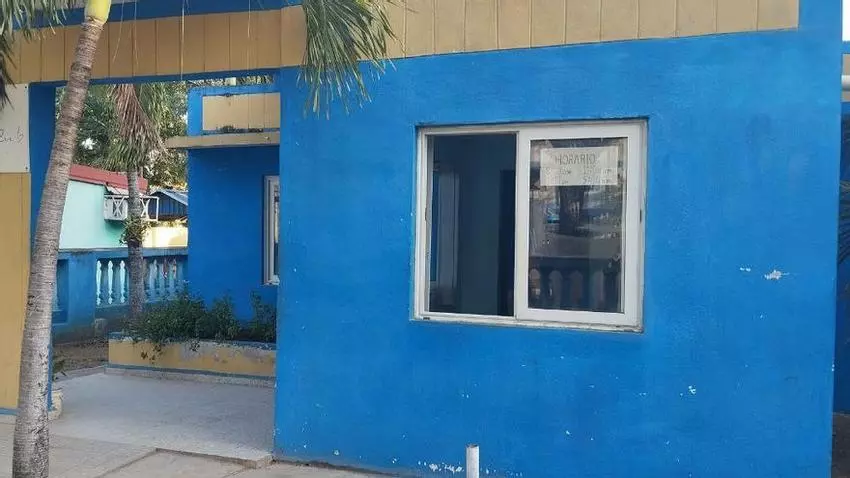
14ymedio, Havana / Holguín, Lucía Oliveira and Miguel García, 3 March 2024 — Where before there were tables with screens and keyboards, now there are boxes of vegetable oil, piles of spaghetti packages and bags of powdered milk piled up. Two of the most important buildings of the Youth Computer and Electronics Club in Holguín have been leased as warehouses to small private companies in the city. The initiative, originally created in 1987 to be the computer spearhead of the Cuban regime, has been in frank deterioration for years.
The economic crisis has hit the Youth Club network hard, because it needs frequent investments in computer equipment. “The machines are now very old, and we piled up some of them in a corner because they don’t even turn on,” an employee of the Lenin neighborhood premises in this eastern Cuban city tells 14ymedio.
“It’s been months since we became a warehouse for the products of private businesses in the area,” the worker admits. “The management of the Holguín Youth Club must collect eight million pesos per month for services, but since we provide fewer and fewer of our own services to the population, we have to make money in a different way.”
Previously, the money was obtained from customers who paid for “machine time” by renting a computer for a few hours, which teenagers and children from nearby neighborhoods used mainly to play video games. But most of the money came from the State budget, which thought of this initiative as the “apple of their eye.”
“Any little kid now has a mobile phone that is much better than the computers we had here”
“We also offered antivirus updates, a copy of the Ecured encyclopedia and La Mochila* (an official alternative to the ‘weekly packet’ [a collection of TV shows, music and digital material, much of it from abroad]). In recent years we didn’t have much, especially after people were able to connect to Wi-Fi networks and the internet,” he emphasizes.
The arrival, in December 2018, of the web browsing service through mobile telephony seems to have struck a mortal blow to a Youth Club network that was initially designed to centralize the use of new technologies. “Any little kid now has a mobile phone that is much better than the computers we had here. If they don’t have one, they ask their parents or a friend and can download and play whatever they want.”
Despite its loss of social importance, the Youth Club for Computation and Electronics continues to be defined on its digital site as “a network of technological centers, with computer solutions” at the fingertips of any Cuban. It adds that it has “a wide portfolio of products and services,” but a tour of its Holguin center points in another direction.
The entity’s office in the Pueblo Nuevo neighborhood is closed. “We don’t have a reopening date at the moment,” a custodian tells this newspaper. “Perhaps when we reopen there will be a store here because that’s what is being done with the others,” he says. Outside, the unpainted facade and a sign with faded colors are far from the impeccable presence that the Youth Club once had.
“All this fell out of favor with the departure of Fidel Castro from the leadership of the country, because everyone knows that this


